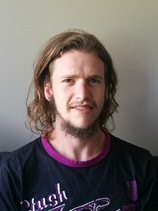Complex networks and the Maximum Entropy Production Principle | Noam Abadi
Field l Discipline
-
Network theory
Expertise
-
Statistics and Programming
Summary
Thermodynamics introduced the concept of entropy as a way to quantify how much energy in a system could be transformed into work. This led to the formulation of the second law of thermodynamics which, ultimately, gives a sense of direction in which macroscopic processes occur. The concept was then broadened by the statistical version of thermodynamics – statistical mechanics – in which entropy represents the direction in which things are likeliest to occur. Then it was even further generalized by information theory, in which entropy provides a formalism for making the best guess on a system by quantifying the amount of missing information.
However, the way in which entropy is used as a prediction tool has stayed more or less the same: entropy production is maximized under given restraints. Recent work suggests that this principle is even broader than we have accounted for so far, being appliable even to out-of-equilibrium systems like living beings, crystals, social networks, or stars. In these cases, the systems achieve steady states in which their heat dissipation is such that it maximises entropy production.
The extension of the concept of entropy to complex networks would therefore provide a useful tool to study and understand the evolution of systems, especially strongly interactive systems like the global economic and energy network. By studying entropy metrics in real-world networks as well as proposing new ones and comparing their prediction capacities in different scenarios, this research could help understand how the complexity of the world around us has come to be, how it will carry on, and what decisions guide the evolution of networks. Such decisions could include ways to propagate an energy transition faster or slow down biodiversity degradation, from the local to the global scale.
Supervision by
-
Promotor: Prof. dr. K.S. (Klaus) Hubacek | Integrated Research on Energy, Environment and Society - IREES | ESRIG, University of Groningen.
-
Co-promotor: Dr. F. (Franco) Ruzzenenti | Integrated Research on Energy, Environment and Society - IREES | ESRIG, University of Groningen.
-
Co-promotor: Prof. L. (Leonid) Martyshev | Ural Federal University, Russia.
More information and contact details can be found on the personal profile of Noam Abadi
| Last modified: | 27 February 2024 08.53 a.m. |

